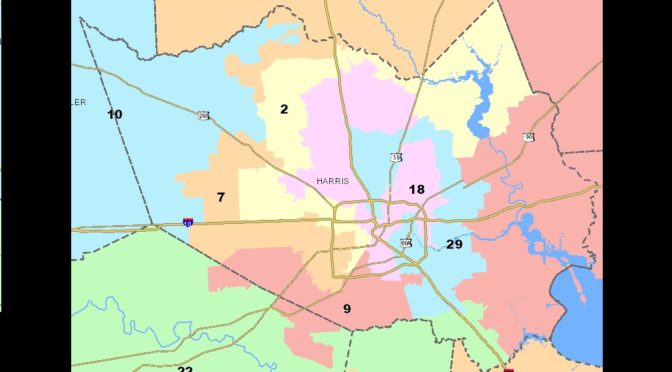
If there's one thing Texas seems to do well, that has to be
disenfranchise and suppress minority voters. After the mostly Republican state legislature drew maps that were clearly, undeniably discriminatory from the 2010 census, minority rights groups immediately moved to sue for fairer maps. Now, for the majority of the decade, the state's …
Continue Reading ›› 
First elected in the Tea Party wave of 2010, Congressman Blake Farenthold has been an interesting character to watch in Texas politics, and a rather confusing presence for the good people of the state's 27th Congressional District. The winner of a razor-thin contest that year, the district was then
gerrymandered (or as some prefer … Continue Reading ›› 
You gotta hand it to politicians... if there's one thing they know how to do, it's getting reelected. Part of the reason I suppose you could say the same for any politician halfway worth their salt.
Those elections are certainly how Texas perseveres as a reliably "Red State" even as our demographics have shifted so dramatically …
Continue Reading ›› 
Words matter, especially to candidates during an election. And sometimes what matters the most are not the promises that the candidate makes to different audiences, but what they're caught saying when they think no one else is listening. It made all the difference in 2012, that's for sure.
For one Republican hopeful up in the Big …
Continue Reading ››
A Voice for the Rest of Texas


